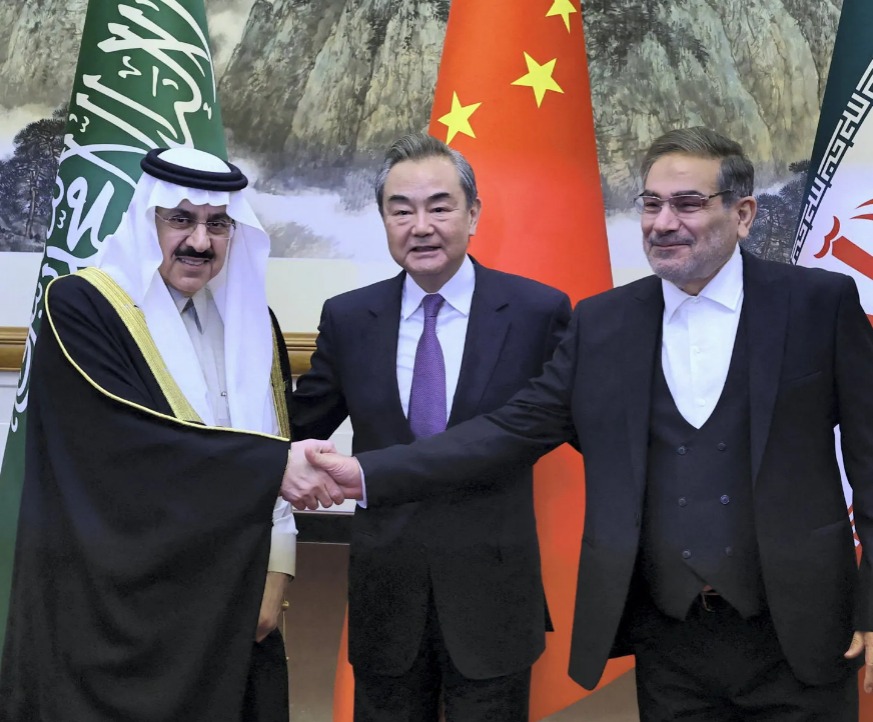IRAN and Saudi Arabia have agreed to re-establish diplomatic relations and reopen their embassies within two months, according to Iranian and Saudi state media.
The agreement was reached on Friday during talks in Beijing.
Iranian state media posted images and video of Ali Shamkhani, secretary of the Supreme National Security Council of Iran, with Saudi national security adviser Musaad bin Mohammed al-Aiban and Wang Yi, China’s most senior diplomat.
“After implementing the decision, the foreign ministers of both nations will meet to prepare for an exchange of ambassadors,” Iranian state television said.
In the footage aired by Iranian media, Wang offered “whole-hearted congratulations” on the two countries’ “wisdom”.
“Both sides have displayed sincerity,” he said. “China fully supports this agreement.”
The Saudi Press Agency confirmed the agreement when it also published the joint statement from Saudi Arabia and Iran, which said the two countries had agreed to respect state sovereignty and not interfere in each other’s internal affairs.
The statement also said Riyadh and Tehran had agreed to activate a security cooperation agreement signed in 2001.
Riyadh, Tehran and Beijing “expressed their keenness to exert all efforts towards enhancing regional and international peace and security,” the statement said.
Iran’s state-run IRNA news agency quoted Shamkhani as calling the talks in Beijing “clear, transparent, comprehensive and constructive”.
“Removing misunderstandings and the future-oriented views in relations between Tehran and Riyadh will definitely lead to improving regional stability and security as well as increasing cooperation among Persian Gulf nations and the world of Islam for managing current challenges,” Shamkhani was quoted as saying.
Wang said China will continue to play a constructive role in handling hotspot issues and demonstrate responsibility as a major nation.
As a “good-faith” and “reliable” mediator, China has faithfully fulfilled its duties as a host for dialogue, he said.
Tensions have long been high between the regional rivals.
Riyadh broke off ties with Tehran in 2016 after protesters invaded Saudi diplomatic posts in Iran. Saudi Arabia had executed a prominent Shia Muslim scholar days earlier, triggering the demonstrations.
Shia-majority Iran and Sunni-majority Saudi Arabia support rival sides in several conflict zones across the Middle East, including in Yemen, where the Houthi rebels are backed by Tehran and Riyadh leads a military coalition supporting the government.
But both sides have recently sought to improve ties.







